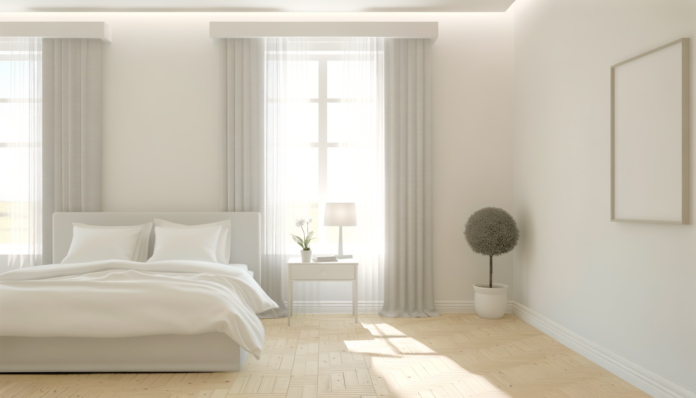Introduction
Understanding Stress-Related Acne
Stress-related acne is a common skin condition that affects many individuals, often exacerbating the emotional and physical toll of stress itself. Unlike typical acne, which is primarily caused by clogged pores and bacteria, stress-related acne is triggered by the body’s response to stress. This type of acne can manifest as pimples, blackheads, or cysts, and is often more challenging to treat due to its underlying cause. Understanding the nuances of stress-related acne is the first step in managing and mitigating its effects.
The Connection Between Stress and Skin Health
The link between stress and skin health is well-documented. When the body experiences stress, it releases hormones such as cortisol, which can lead to an increase in oil production in the skin. This excess oil can clog pores and result in acne breakouts. Additionally, stress can weaken the skin’s barrier function, making it more susceptible to irritants and infections. The inflammatory response triggered by stress can also exacerbate existing skin conditions, making them more difficult to manage. Therefore, addressing stress is crucial for maintaining healthy skin.
Purpose of the Article
The purpose of this article is to provide a comprehensive guide on how to transition from tension to tranquility by making lifestyle tweaks that can help soothe stress-related acne. We will delve into the science behind stress and acne, explore various lifestyle changes that can reduce stress, and offer practical skincare routine adjustments. Additionally, we will discuss the importance of emotional and mental well-being in managing stress and acne. By the end of this article, you will have a holistic understanding of how to tackle stress-related acne from multiple angles, empowering you to achieve clearer, healthier skin.
The Science Behind Stress and Acne
How Stress Affects Hormones
Stress triggers a cascade of hormonal changes in the body, primarily involving the hypothalamic-pituitary-adrenal (HPA) axis. When you’re stressed, your body releases cortisol, often referred to as the “stress hormone.” Elevated cortisol levels can lead to an increase in sebum production, the oily substance that can clog pores and lead to acne. Additionally, stress can disrupt other hormones such as androgens, which are also known to exacerbate acne. This hormonal imbalance creates an environment where acne can thrive, making it crucial to manage stress effectively.
Inflammatory Response and Skin
Stress doesn’t just affect hormones; it also has a significant impact on the body’s inflammatory response. When you’re stressed, your body produces pro-inflammatory cytokines, which can lead to inflammation in various tissues, including the skin. This inflammation can exacerbate existing acne and make it more difficult for your skin to heal. Moreover, stress can weaken the skin’s barrier function, making it more susceptible to infections and irritants. This combination of increased inflammation and a compromised skin barrier can create a vicious cycle, where stress leads to acne, and acne leads to more stress.
Psychological Impact of Acne
The relationship between stress and acne is bidirectional. While stress can lead to acne, the presence of acne can also contribute to psychological stress. Acne can significantly affect self-esteem and body image, leading to feelings of embarrassment, anxiety, and even depression. This emotional distress can, in turn, exacerbate stress levels, creating a feedback loop that makes it challenging to break free from the cycle of stress and acne. Understanding this psychological impact is essential for developing a comprehensive approach to managing stress-related acne, which includes both physical and emotional well-being.
By understanding the intricate ways in which stress affects your skin, you can take more targeted steps to manage both your stress levels and your acne. This holistic approach can help you achieve clearer skin and a more balanced life.
Lifestyle Tweaks for Reducing Stress
Mindfulness and Meditation
Mindfulness and meditation are powerful tools for managing stress and, consequently, improving skin health. By focusing on the present moment and practicing deep breathing, you can significantly reduce cortisol levels, which are often elevated during stressful periods. **Mindfulness** involves paying attention to your thoughts, feelings, and sensations without judgment. This practice can be as simple as taking a few minutes each day to sit quietly and focus on your breath.
**Meditation** can take various forms, such as guided imagery, where you visualize a peaceful scene, or body scan meditation, where you focus on different parts of your body. Both techniques help in calming the mind and reducing stress-induced inflammation, which can lead to acne. Incorporating these practices into your daily routine can create a sense of tranquility and improve your overall well-being.
Physical Activity and Exercise
Engaging in regular physical activity is another effective way to manage stress and improve skin health. Exercise releases endorphins, which are natural mood lifters, and helps lower cortisol levels. Whether it’s a brisk walk, a yoga session, or a high-intensity workout, physical activity can significantly reduce stress and its impact on your skin.
**Outdoor activities** like walking or jogging in nature can be particularly beneficial. Exposure to natural light and fresh air can enhance your mood and provide additional benefits for your skin. Aim for at least 30 minutes of moderate exercise most days of the week to keep stress at bay and maintain a healthy complexion.
Healthy Sleep Habits
Quality sleep is crucial for stress management and skin health. Lack of sleep can elevate cortisol levels, leading to increased inflammation and acne. Establishing a consistent sleep schedule and creating a relaxing bedtime routine can help improve the quality of your sleep.
**Tips for better sleep** include:
– **Creating a calming environment**: Keep your bedroom cool, dark, and quiet.
– **Limiting screen time**: Avoid electronic devices at least an hour before bed to reduce exposure to blue light, which can interfere with sleep.
– **Practicing relaxation techniques**: Activities like reading, taking a warm bath, or practicing gentle yoga can help prepare your body for restful sleep.
Aim for 7-9 hours of sleep per night to allow your body and skin to repair and rejuvenate.
Balanced Diet and Nutrition
A balanced diet rich in vitamins, minerals, and antioxidants can play a significant role in managing stress and improving skin health. Foods high in **omega-3 fatty acids**, such as salmon and walnuts, have anti-inflammatory properties that can help reduce acne.
**Incorporate the following into your diet**:
– **Fruits and vegetables**: Rich in antioxidants, they help combat oxidative stress.
– **Whole grains**: Provide a steady release of energy and help maintain stable blood sugar levels.
– **Lean proteins**: Essential for skin repair and regeneration.
Avoid excessive consumption of sugar and processed foods, as they can spike insulin levels and exacerbate acne. Staying hydrated by drinking plenty of water is also crucial for maintaining healthy skin.
By making these lifestyle tweaks, you can effectively manage stress and its impact on your skin, leading to a clearer, healthier complexion.
Skincare Routine Adjustments
Gentle Cleansing Practices
One of the foundational steps in any skincare routine, especially for those dealing with stress-related acne, is gentle cleansing. **Harsh cleansers** can strip the skin of its natural oils, exacerbating dryness and irritation. Instead, opt for **mild, sulfate-free cleansers** that maintain the skin’s natural barrier. Cleansing should be done twice daily—once in the morning and once before bed—to remove dirt, oil, and impurities without over-drying the skin. **Avoid scrubbing** your face vigorously; instead, use gentle, circular motions to cleanse your skin effectively.
Non-Comedogenic Products
When selecting skincare products, it’s crucial to choose those labeled as **non-comedogenic**. These products are formulated to not clog pores, reducing the risk of breakouts. Look for ingredients like **salicylic acid** and **benzoyl peroxide**, which help to keep pores clear and reduce inflammation. Additionally, avoid heavy, oil-based products that can contribute to acne. Instead, opt for **lightweight, water-based formulations** that provide hydration without causing congestion.
Hydration and Moisturization
Hydration is key to maintaining healthy skin, even for those with acne-prone skin. **Hydrating serums** containing ingredients like **hyaluronic acid** can attract moisture to the skin, keeping it plump and hydrated. Follow up with a **non-comedogenic moisturizer** to lock in this hydration. Moisturizing helps to repair the skin barrier, which can be compromised by stress and acne treatments. **Aloe vera** and **ceramides** are excellent ingredients to look for in moisturizers, as they soothe and strengthen the skin.
Sun Protection
Sun protection is a non-negotiable step in any skincare routine. **UV rays** can worsen acne and lead to hyperpigmentation, making it essential to use a **broad-spectrum sunscreen** with at least SPF 30. Choose a **non-comedogenic sunscreen** to avoid clogging pores. Sunscreens with **zinc oxide** or **titanium dioxide** are often recommended for acne-prone skin as they provide effective protection without causing breakouts. Apply sunscreen every morning, and reapply every two hours if you’re spending time outdoors.
By incorporating these **skincare routine adjustments**, you can create a regimen that not only addresses stress-related acne but also promotes overall skin health. Remember, consistency is key, and combining these practices with stress management techniques can lead to significant improvements in your skin’s appearance and health.
Emotional and Mental Well-being
Stress Management Techniques
Managing stress effectively is crucial for maintaining both mental well-being and skin health. Here are some proven techniques to help you manage stress:
- Mindfulness and Meditation: Practicing mindfulness and meditation can significantly reduce stress levels. Techniques such as guided imagery and box breathing help shift focus to the present moment, reducing anxiety and promoting relaxation.
- Physical Activity: Regular exercise releases endorphins, which are natural mood lifters. Even a simple 20-minute walk in nature can lower cortisol levels and improve your overall mood.
- Journaling: Writing down your thoughts and feelings can be a therapeutic way to process emotions and reduce stress. It helps in gaining perspective and identifying stress triggers.
- Aromatherapy: Using essential oils like lavender, sandalwood, and rose can help lower anxiety and cortisol levels. Incorporate these into your daily routine through diffusers, baths, or skincare products.
Building a Support System
Having a strong support system is essential for emotional resilience and stress management. Here are some ways to build and maintain a supportive network:
- Family and Friends: Surround yourself with loved ones who offer emotional support. Regularly communicating with them can provide a sense of security and belonging.
- Support Groups: Joining a support group can be beneficial, especially if you are dealing with specific stressors like chronic illness or mental health issues. Sharing experiences with others who understand can be incredibly comforting.
- Professional Help: Don’t hesitate to seek help from mental health professionals. Therapists and counselors can offer valuable coping strategies and emotional support.
- Community Involvement: Engaging in community activities or volunteering can provide a sense of purpose and connection, reducing feelings of isolation and stress.
Therapeutic Activities
Engaging in therapeutic activities can significantly enhance your emotional and mental well-being. Here are some activities to consider:
- Creative Outlets: Activities like painting, drawing, or playing a musical instrument can be incredibly therapeutic. They allow for self-expression and can be a great way to unwind.
- Yoga and Tai Chi: These practices combine physical movement with mindfulness, helping to reduce stress and improve mental clarity. They also promote relaxation and improve overall well-being.
- Nature Therapy: Spending time in nature has been shown to reduce stress and improve mood. Activities like hiking, gardening, or simply sitting in a park can be very calming.
- Reading and Writing: Immersing yourself in a good book or writing your thoughts can be a great way to escape from daily stressors and relax your mind.
Incorporating these stress management techniques, building a strong support system, and engaging in therapeutic activities can significantly improve your emotional and mental well-being, ultimately helping to soothe stress-related acne.
Real-Life Stories and Testimonials
Personal Experiences with Stress-Related Acne
Many individuals have faced the frustrating cycle of stress and acne, where one exacerbates the other. For instance, *Emily*, a 28-year-old marketing professional, shares her experience:
*”During a particularly stressful period at work, I noticed my skin breaking out more than usual. The constant deadlines and high expectations left me feeling overwhelmed, and my skin bore the brunt of it. I tried various over-the-counter treatments, but nothing seemed to work. It wasn’t until I started practicing mindfulness and meditation that I saw a significant improvement. By managing my stress levels, my skin gradually began to clear up.”*
Similarly, *John*, a college student, recounts his battle with stress-related acne:
*”Balancing my studies, part-time job, and social life was taking a toll on me. I started breaking out on my forehead and cheeks, which only added to my stress. I realized that my late-night study sessions and poor diet were contributing factors. By incorporating regular exercise and healthier eating habits, I noticed a reduction in my acne. It was a slow process, but it made a world of difference.”*
Success Stories of Overcoming Stress and Acne
Overcoming stress-related acne often requires a holistic approach, combining lifestyle changes with effective skincare routines. *Sarah*, a 35-year-old mother of two, shares her success story:
*”Juggling work and family responsibilities left me constantly stressed, and my skin was suffering. I decided to take a proactive approach by incorporating yoga and meditation into my daily routine. Additionally, I switched to non-comedogenic skincare products and ensured I stayed hydrated. Within a few months, my skin started to clear up, and I felt more at peace. It was a transformative experience.”*
Another inspiring story comes from *Michael*, a 40-year-old entrepreneur:
*”Running my own business was incredibly stressful, and it showed on my skin. I had persistent acne that wouldn’t go away. I consulted a dermatologist who recommended a combination of gentle cleansing practices and stress management techniques. I also started taking short breaks during work to practice deep breathing exercises. Over time, my skin improved, and I felt more in control of my stress levels. It was a game-changer for me.”*
These real-life stories highlight the importance of addressing both the physical and emotional aspects of stress-related acne. By making mindful lifestyle changes and adopting a consistent skincare routine, many have found relief and regained their confidence.
Conclusion
Recap of Key Points
As we have explored throughout this article, stress-related acne is a multifaceted issue that requires a holistic approach to manage effectively. We began by understanding the connection between stress and skin health, delving into how stress affects hormones, triggers inflammatory responses, and impacts our psychological well-being. We then discussed various lifestyle tweaks that can help reduce stress, such as mindfulness and meditation, physical activity, healthy sleep habits, and a balanced diet. Additionally, we highlighted the importance of adjusting your skincare routine with gentle cleansing practices, non-comedogenic products, proper hydration, and sun protection. Finally, we emphasized the significance of emotional and mental well-being, including stress management techniques, building a support system, and engaging in therapeutic activities.
Encouragement for Lifestyle Changes
Making lifestyle changes can seem daunting, but the benefits for both your skin and overall well-being are immense. Start small by incorporating one or two new habits into your daily routine. For instance, you might begin with a few minutes of meditation each morning or commit to a regular exercise schedule. Remember, consistency is key. Over time, these small changes can lead to significant improvements in your stress levels and skin health. Don’t be discouraged by setbacks; progress is often non-linear, and every step you take towards a healthier lifestyle is a step in the right direction.
Final Thoughts
Stress-related acne is a common issue that many people face, but it doesn’t have to be a permanent part of your life. By understanding the underlying causes and implementing targeted lifestyle and skincare adjustments, you can move from tension to tranquility. Your journey to clearer skin and reduced stress is a personal one, and it’s important to find what works best for you. Embrace the process, be patient with yourself, and celebrate your progress along the way. Remember, taking care of your mental and emotional health is just as crucial as caring for your skin. Here’s to a future of tranquility and radiant skin!



